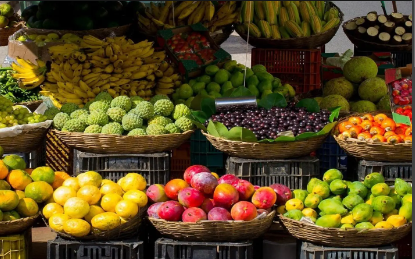
AFRICA – In response to the escalating global challenges of climate degradation, conflicts, and economic slowdown, the Food and Agriculture Organization of the United Nations (FAO) has unveiled an ambitious initiative to mobilize US$1.8 billion for emergency agricultural support worldwide in 2024.
The initiative aims to address the critical issue of undernourishment, affecting nearly 735 million people globally.
The FAO’s press release on December 11 detailed its plan to utilize the proposed funds to provide concrete support to 43 million people worldwide, facilitating access to inputs and other means of production.
Notably, approximately two-thirds of those facing severe food insecurity globally rely on agriculture for their income.
The FAO emphasizes that interventions focusing on strengthening the productive capacities of populations, combined with cash transfers and direct food distributions, represent an efficient way to respond to urgent humanitarian needs.
Despite emergency aid for agriculture currently accounting for only 4% of humanitarian funds allocated to food, the FAO highlights its significant impact.
In 2022, emergency support for agricultural production, with just US$598 million, enabled 23 million people in 29 countries to produce their food, resulting in a remarkable return on investment of $6 for every dollar supplied.
FAO’s Deputy Director-General, Beth Bechdol, underscored the importance of flexible and unearmarked funding through the Special Fund for Emergency and Rehabilitation Activities (SFERA).
This funding mechanism allows the FAO to pre-position critical inputs ahead of upcoming planting seasons in regions such as Ukraine and South Sudan, ensuring timely responses to emerging crises.
The global appeal for US$1.8 billion is part of the broader United Nations humanitarian appeal for $46.4 billion, aimed at supporting 180.5 million people worldwide in 2024.
The FAO’s focus on emergency agricultural interventions aligns with the imperative to address acute hunger driven by armed conflicts, economic shocks, climate extremes, poverty, and inequality.
As food crises continue to dominate the global outlook for 2024, the FAO’s call for funds underscores the urgency of supporting agriculture to ensure food security, mitigate hunger, and enhance the resilience of vulnerable populations facing multiple challenges.
In conclusion, the FAO’s initiative serves as a critical step towards alleviating global hunger, emphasizing the pivotal role of emergency agricultural support in responding to humanitarian crises.
The US$1.8 billion mobilization seeks to make a tangible difference in the lives of millions, providing a lifeline to those grappling with the harsh realities of food insecurity.
